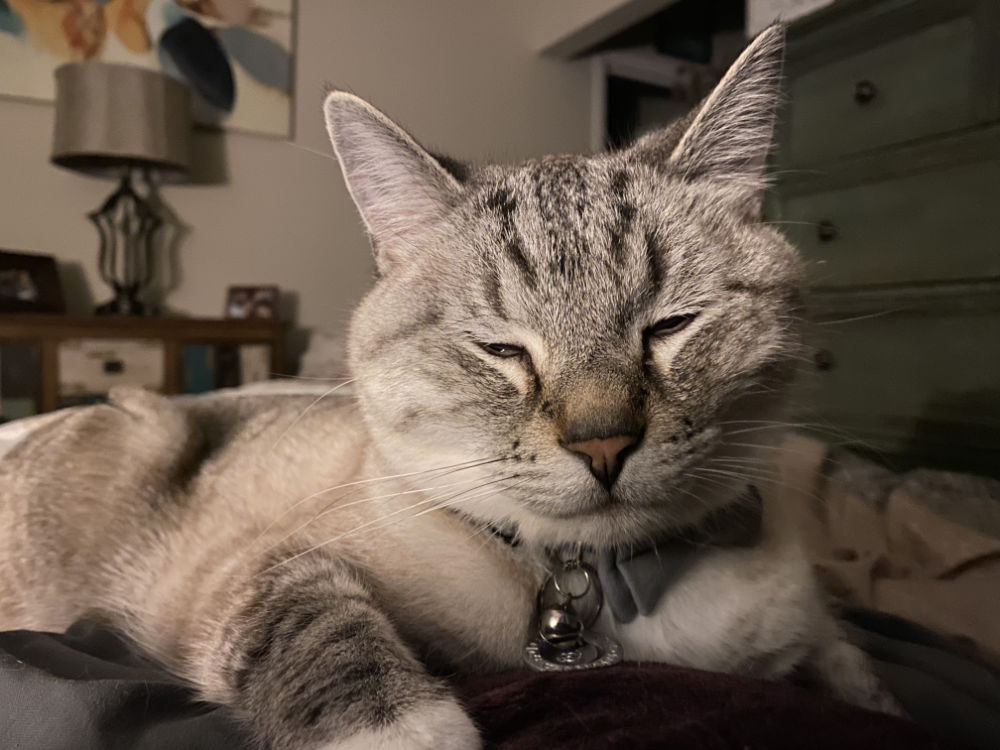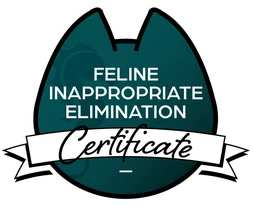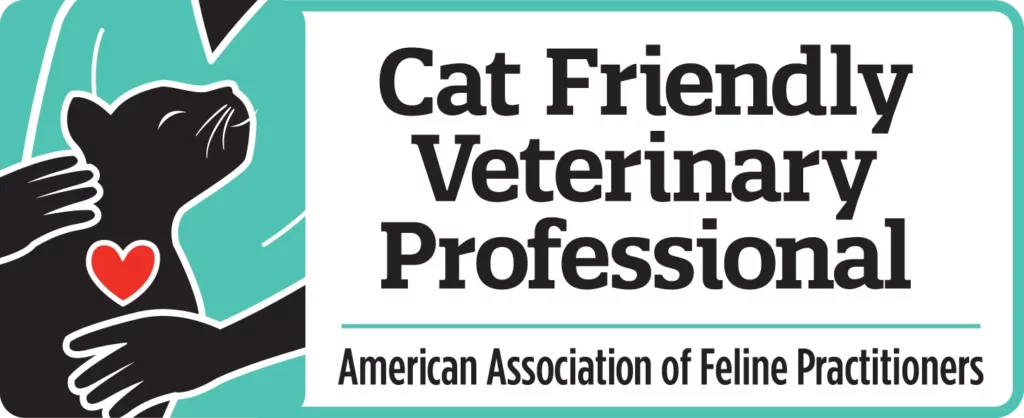Cats and fireworks generally don’t mix. Your kitty may run and hide when the boom, boom, boom, booms start. If your cat is fearfully aggressive, they may even aggress toward you or another cat. Thankfully, even fearful cats can learn to tolerate fireworks. Let’s discuss some strategies to help your feline friend feel more secure.
Working With My Own Cat
My own cat, Zoloft, generally isn’t thrilled about fireworks. He isn’t as bad as some cats I’ve worked with, but if they’re nearby he will hide pretty quickly. I want to share a story of two very different evenings that occurred over the two nights prior to me writing this post as it gives a great example of how one can go about calming their cat down.
Night One
The weather in Minnesota has been rather hot lately, but thankfully in the evening it generally has gotten cool enough that I can turn off the AC. That means windows open and fresh air coming in. Friday night was no exception so as soon as it was a tolerable temperature, I flung open all my windows and turned off the giant electricity leech that is my air conditioner.
Unfortunately for both me and my sweet, sweet Zoloft, this weekend is July 4th. It didn’t take long after opening the windows and the sun taking its nightly rest for the booms to begin. Z get spooked by fireworks depending on how close by they are so as soon as the boom boom booms started happening, he went from relaxing peacefully on the floor after an exhausting day of being cute to being on edge and in full alert mode.
He quickly retreated to the inner hallway where he likes to hide during thunderstorms. As the fireworks eventually faded, he was eventually able to move about the apartment more freely. He definitely was more nervous and reactive than usual. As the occasional single loud pop would go off (WHO SETS OFF JUST ONE FIREWORK?!?! No one finds a single firework cool), he would be on full alert once again.
Night Two
Contrast this with last night, July 4th Eve. Yes, I did make up a new holiday. Not only was it the day before Independence Day, but it was a Saturday meaning folks had more time to light things on fire and launch them into the night sky. Yesterday was also considerably warmer than Friday night so I kept my air conditioning on all night. There definitely were more pops going off in the distance, but they were muted by the sound of the AC.
This may seem like a small difference, but to Z it made a huge difference. Here’s photographic evidence of how our night went:

Z would occasionally perk up at some of the louder booms or if a rocket was shot off during the brief time periods where the AC was resting, but mostly it was a pretty relaxed evening for the two of us. He was his usual calm, snuggly self and not living in fear of the boom boom booms!
So why do I bring this story up (other than me looking to share a cute picture of my cat sleeping) and how does it apply to your cat? Let’s look at why cats may be afraid of fireworks.
Why Cats And Fireworks Don’t Mix
Cats can be very anxious creatures because of their unique evolutionary niche as both predatory and prey. Ancestors of our house cats that ran away from loud, scary noises survived better than the ones who didn’t. Unfortunately, that manifests itself today in the fear many cats experience during fireworks. This fear can lead to problems for both felines and humans. Fearful cats can hide, act aggressively, or even put themselves in danger so it’s important to make sure you reduce the risk to yourself and your cat by mitigating their anxiety.
Addressing Cats’ Fear Of Fireworks
First off, if your cat has any really severe problems with anxiety or aggression, an appointment with your veterinarian to rule out potential medical causes of the cat’s behavior is critical. This is especially true if the behavior is out of character or a sudden change for your cat. A meeting with a behavior consultant to help manage the cat’s behavior can be extremely helpful.
In many cases, fear of fireworks may be a natural, expected cat behavior so you may find it hard to help your cat on your own. The first priority is always making sure your cat (and you) will be safe regardless of their reaction to any of the boom boom booms. If your cat spends time outdoors, make sure they are inside BEFORE nightfall and the majority of fireworks start.
You may want to block access to them going outside so they don’t run away or injury themselves while they are trying to escape the loud, scary noises. Make sure there aren’t any open windows or other routes of escape either. Fearful cats may try to get however they can!
Reduce The Intensity Of The Sound
First, and I hope obviously, keep your windows closed to mute some of the noise. Depending on how close you are to fireworks, you may be able to reduce some of the impact of them by creating more pleasant ambient noise for your cat.
This may include turning on the air conditioning or a fan, playing music, or even turning on a white noise machine. Don’t create enough noise that it’s uncomfortable or more scary for the cat, but by drowning out some of the unexpected noises from outside you may reduce the chance of your cat crossing the threshold into anxiety.
Let Your Cat Hide Safely
Many well meaning owners may do things that can worsen their cat’s anxiety or even put them in danger of a fearful cat’s anxiety response. If your cat runs and hides, don’t try to pull them out of the hiding spot so you can pet them. This may seem like it is calming, but the cat is already in a state of fear. Being grabbed is not going to help.
Obviously if they are unsafe where they are hiding, remove them with caution. But if they’re somewhere that doesn’t present a danger to them? Let them be. You can encourage safe hiding by providing boxes, covered cat beds, or other safe places for your cat to retreat. Cats like having choices of where they can hide if needed.
Build A Positive Association With Noise
You can also (cautiously) try to turn the experience into a more positive one for your cat. Offer treats or food to your if they are not too spooked so it becomes a more positive experience. While some cats may find gentle petting or play to be distracting or helpful, use caution as you don’t want your cat to become too aroused. This can lead to a fearful response from your cat and may make things worse.
As always, listen to your cat and observe their body language. If they are showing signs that they’ve had enough, back off. Some cats may just want to sit by their human(s) without being petted. That may be all they need to help stay calm.
There are many products out there designed to help calm cats. One particularly useful product may be pheromone based products like Feliway that help mimic cats’ natural pheromones. This can calm anxious cats and is available in both a diffuser and a spray. There are also calming collars, vests, and other options available. You can discuss options with a cat behaviorist or your veterinarian for more specific recommendations for your cat’s needs.
Keep in mind that for cats, the fireworks may not end once the smoke has cleared. Cats can be spooked for hours after a scary event. Be careful to not do anything too anxiety inducing or stimulating until you’re certain they’ve calmed down. Your cat will thank you for it and you won’t have to worry as much about acquiring new scratch marks as a reminder of the holiday.
I hope you and your cats have a safe and cool 4th of July!










